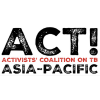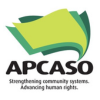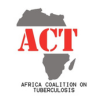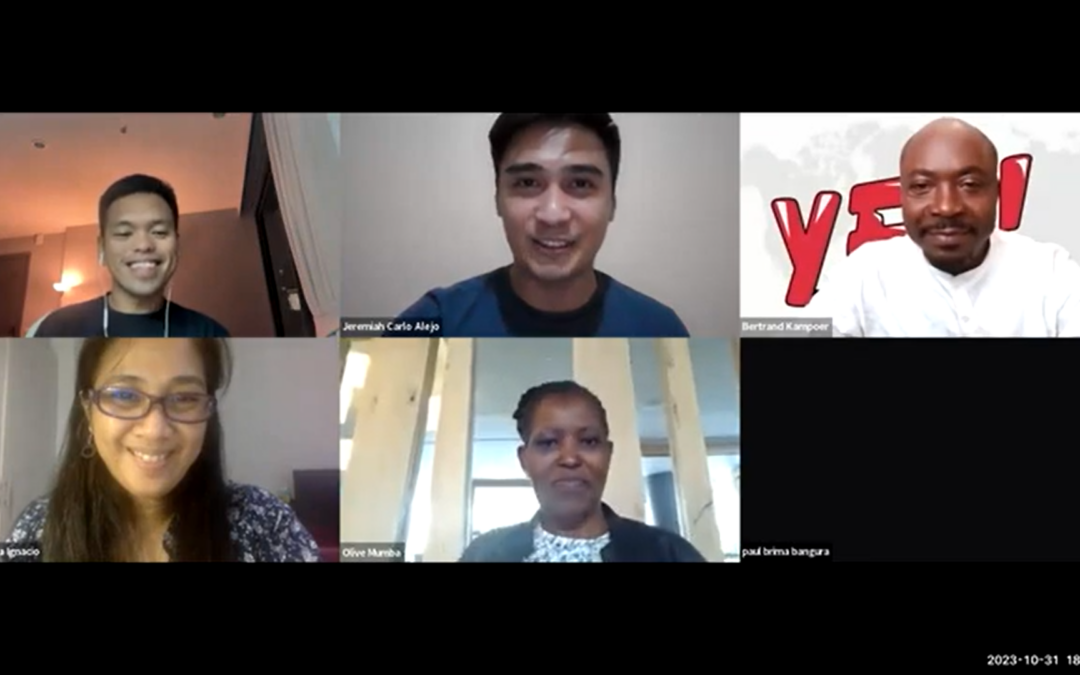The 3rd CELG webinar session was held on the 22nd of November 2023. The session was held to provide the participating organizations a platform to share the initial results of their community engagement study and their initial recommendations to strengthen the capacities of partner key vulnerable groups and last mile populations to engage/participate in the governance of pandemic prevention, preparedness, and response processes.
To provide context to the presentation of the organizations, Dr. Jeremiah Carlo Alejo provided a recap of the previous session. He emphasized the shared lessons learned by participating Global Fund-sponsored organizations regarding the governance of responses and basic health services during the COVID-19 pandemic.
Olive Mumba of Global Fund discussed the Global Fund Pandemic Governance Capacity-Building Framework to inform the participants of the directions the agency is moving towards. She explained that the international funding agency is transitioning the focus of assistance from COVID-19 Response to developing health systems resilience and pandemic preparedness. One of the focus of the direction is the capacitation and strengthening of partner organizations and communities to engage in pandemic governance.
The CELG is a project being implemented in Asia and the Pacific as part of this transition. Rachel Out-Amponsah of ACT Africa provided a background of the CELG Assessment and Planning Process. She emphasized that the project aims to strengthen the capacities of last mile populations to engage and in pandemic governance structures through the development of community engagement plans. The plans were intended to be developed based on an assessment of both barriers and opportunities encountered by last mile populations and community-led organizations during the COVID-19 pandemic.
Three country-level organizations presented the initial findings and recommendations of their study:
- Chhit Ty presented in behalf of Khmer HIV/AIDS NGO Alliance (KHANA) in Cambodia. Their organization works on TB and HIV programs and identified internal migrants, construction workers and workers in enclosed spaces (garment workers and entertainment workers) as particularly vulnerable yet are being left behind in TB programs especially during the pandemic.
- Bertrand Kampoer presented in behalf of For Impacts in Social Health (FIS) in Cameroon. Their organization has identified internally displaced populations as last mile populations in their work against TB due to the lack of engagement from the side of service providers as well as their limited access to services including information.
- Meriamo de Conceicao from Mozambique presented in behalf of ADPP. Their organization have identified miners and internally displaced populations as last mile populations in their fight against TB.
A common characteristic among the identified last mile populations of the three organizations was the increased vulnerability of the groups to TB due to the combined effects of increased exposure to infectious diseases, of lack of access to health services including health information, and of limited representation in health governance decision-making. Cambodia’s construction, garment and entertainment workers and Mozambique’s miners are at increased risks due to the occupational exposure. Conflict-driven internal displacement among groups from all three countries encounter limited access to services and resources which is further complicated by sociocultural distrust. These vulnerabilities are further complicated by decreased representation and participation in health planning, particularly because of poor engagement from the side of service providers. The presenters have all described the pandemic as having worsened the vulnerabilities of the last mile populations, particularly the limitation in access to basic health services and the lack of engagement in pandemic response.
Based on the initial results of their studies, the participants have identified several recommendations for strategies to strengthen the engagement capacities of last mile populations in the health systems strengthening and pandemic governance:
- Helping KVPs and LMPs to organize themselves to facilitate integration into existing CSO-engagement structures, particularly those of the government, as well as to be platforms for health service provision including peer support and information sharing;
- Capacitating both community-led organizations, particularly those of KVPs and LMPs, and civil society organizations supporting KVPs and LMPs through pandemic literacy and pandemic governance integration in organizational processes;
- Facilitating community-led mobilization and advocacy for increasing engagement and participation platforms for KVPs and LMPs in health development planning including pandemic prevention, preparedness and response; and
- Ensuring representation and participation in health and pandemic governance structures and platforms, particularly those related to the development of national pandemic prevention, preparedness and response strategic plans.
The initial recommendations are intended to be translated to actual community engagement plans. Dr. Alejo closed the session by explaining that the following and last session will focus on the status of the engagement plans.




